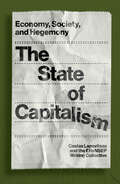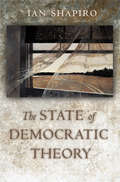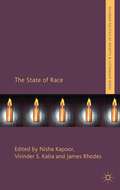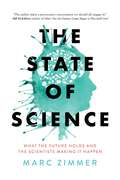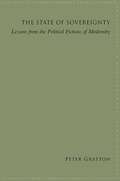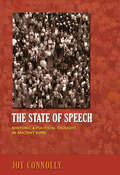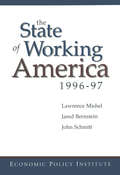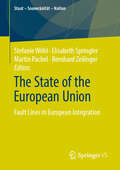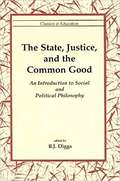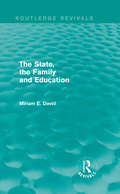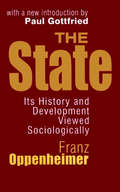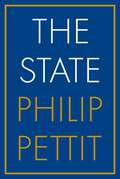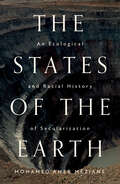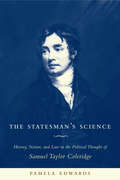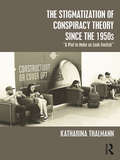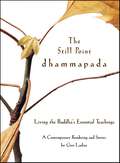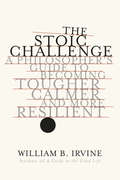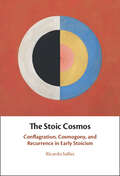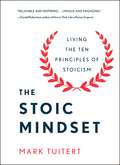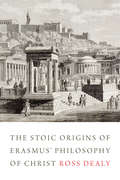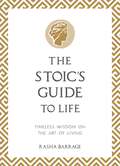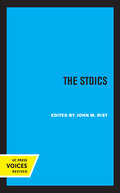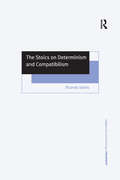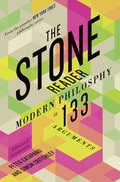- Table View
- List View
The State of Capitalism: Economy, Society, and Hegemony
by Costas Lapavitsas EReNSEP Writing CollectiveThinking beyond pandemic capitalismThe health emergency that broke out in 2020 is a landmark event in the development of capitalism, confirming the underlying change signalled by the Great Crisis of 2007-9. The pandemic has catapulted the state to the centre of economic activity. However, a historic impasse is steadily becoming apparent at the core of the world economyProductive accumulation is flaccid, as both profitability and labour productivity are weak. Financialisation has entered a new phase, as &“shadow banking&” grew relative to other banks but is entirely dependent on the state. The power of the state derives from command over fiat money and can certainly deliver enormous boosts to aggregate demand, but that is not enough to tackle the weakness of the productive sector.The rise in inflation for the first time in forty years indicates the impasse. There is a transparent need for intervention on the supply side, directly challenging capitalist property rights. There is no evidence, however, that the ruling blocs in core countries would engage in such policies.The pandemic crisis also brought to the fore fresh divisions of core and periphery across the world economy. Imperialism has assumed new forms, spurred by globally active financial capital and internationalised productive capital. A renewed contest for hegemony has emerged as US power declined. The economic challenge of China will unfold steadily in the years ahead, intensifying political tensions and military rivalries.This book is the work of a research collective comprising authors from several parts of the world. It analyses these vital issues from the perspective of Marxist political economy and puts forth alternative anticapitalist proposals.
The State of Democratic Theory
by Ian ShapiroWhat should we expect from democracy, and how likely is it that democracies will live up to those expectations? In The State of Democratic Theory, Ian Shapiro offers a critical assessment of contemporary answers to these questions, lays out his distinctive alternative, and explores its implications for policy and political action. Some accounts of democracy's purposes focus on aggregating preferences; others deal with collective deliberation in search of the common good. Shapiro reveals the shortcomings of both, arguing instead that democracy should be geared toward minimizing domination throughout society. He contends that Joseph Schumpeter's classic defense of competitive democracy is a useful starting point for achieving this purpose, but that it stands in need of radical supplementation--both with respect to its operation in national political institutions and in its extension to other forms of collective association. Shapiro's unusually wide-ranging discussion also deals with the conditions that make democracy's survival more and less likely, with the challenges presented by ethnic differences and claims for group rights, and with the relations between democracy and the distribution of income and wealth. Ranging over politics, philosophy, constitutional law, economics, sociology, and psychology, this book is written in Shapiro's characteristic lucid style--a style that engages practitioners within the field while also opening up the debate to newcomers.
The State of Freedom: A Social History of the British State since 1800
by Patrick JoyceWhat is the state? The State of Freedom offers an important new take on this classic question by exploring what exactly the state did and how it worked. Patrick Joyce asks us to re-examine the ordinary things of the British state from dusty government files and post offices to well-thumbed primers in ancient Greek and Latin and the classrooms and dormitories of public schools and Oxbridge colleges. This is also a history of the 'who' and the 'where' of the state, of the people who ran the state, the government offices they sat in and the college halls they dined in. Patrick Joyce argues that only by considering these things, people and places can we really understand the nature of the modern state. This is both a pioneering new approach to political history in which social and material factors are centre stage, and a highly original history of modern Britain.
The State of Race
by Virinder S. Kalra Nisha Kapoor James RhodesThis book analyses the nature of the contemporary racial state, exploring issues such as the nature of postraciality, racial neoliberalism, the state of multiculturalism and whiteness, alongside the functioning of state institutions and policy concerning the military, education, community surveillance, asylum and extradition.
The State of Science: What the Future Holds and the Scientists Making It Happen
by Marc ZimmerNew research and innovations in the field of science are leading to life-changing and world-altering discoveries like never before. What does the horizon of science look like? Who are the scientists that are making it happen? And, how are we to introduce these revolutions to a society in which a segment of the population has become more and more skeptical of science? Climate change is the biggest challenge facing our nation, and scientists are working on renewable energy sources, meat alternatives, and carbon dioxide sequestration. At the same time, climate change deniers and the politicization of funding threaten their work. CRISPR, (Clustered Regularly Interspaced Short Palindromic Repeats) repurposes bacterial defense systems to edit genes, which can change the way we live, but also presents real ethical problems. Optogenetics will help neuroscientists map complicated neural circuitry deep inside the brain, shedding light on treating Alzheimer&’s and Parkinson&’s disease. Zimmer also investigates phony science ranging from questionable &“health&” products to the fervent anti-vaccination movement. Zimmer introduces readers to the real people making these breakthroughs. Concluding with chapters on the rise of women in STEM fields, the importance of US immigration policies to science, and new, unorthodox ways of DIY science and crowdsource funding, The State of Science shows where science is, where it is heading, and the scientists who are at the forefront of progress.
The State of Sovereignty: Lessons from the Political Fictions of Modernity (SUNY series in Contemporary French Thought)
by Peter GrattonFollowing up on the fables and stories surrounding political sovereignty—once theological, now often nationalist—Peter Gratton's The State of Sovereignty takes aim at the central concepts surrounding the post-9/11 political environment. Against those content to conceptualize what has been called the "sovereign exception," Gratton argues that sovereignty underwent profound changes during modernity, changes tracked by Rousseau, Arendt, Foucault, Agamben, and Derrida. Each of these thinkers investigated the "fictions" and "illusions" of claims to sovereign omnipotence, while outlining what would become the preeminent problems of racism, nationalism, and biopower. Gratton illustrates the principal claims that tie these philosophers together and, more importantly, what lessons they offer, perhaps in spite of themselves, for those thinking about the future of politics. His innovative readings will open new ground for new and longtime readers of these philosophers alike, while confronting how their critiques of sovereignty reshape our conceptions of identity, freedom, and selfhood. The result not only fills a long-standing need for an up-to-date analysis of the concept of sovereignty but is also a tour de force engaging readers in the most important political and philosophical questions today.
The State of Speech: Rhetoric and Political Thought in Ancient Rome
by Joy ConnollyRhetorical theory, the core of Roman education, taught rules of public speaking that are still influential today. But Roman rhetoric has long been regarded as having little important to say about political ideas. The State of Speech presents a forceful challenge to this view. The first book to read Roman rhetorical writing as a mode of political thought, it focuses on Rome's greatest practitioner and theorist of public speech, Cicero. Through new readings of his dialogues and treatises, Joy Connolly shows how Cicero's treatment of the Greek rhetorical tradition's central questions is shaped by his ideal of the republic and the citizen. Rhetoric, Connolly argues, sheds new light on Cicero's deepest political preoccupations: the formation of individual and communal identity, the communicative role of the body, and the "unmanly" aspects of politics, especially civility and compromise. Transcending traditional lines between rhetorical and political theory, The State of Speech is a major contribution to the current debate over the role of public speech in Roman politics. Instead of a conventional, top-down model of power, it sketches a dynamic model of authority and consent enacted through oratorical performance and examines how oratory modeled an ethics of citizenship for the masses as well as the elite. It explains how imperial Roman rhetoricians reshaped Cicero's ideal republican citizen to meet the new political conditions of autocracy, and defends Ciceronian thought as a resource for contemporary democracy.
The State of Working America: 1996-97 (State Of Working America Ser.)
by Jared Bernstein Lawrence Mishel John SchmittThe State of Working America, 1996-97 presents a statistical portrait of the standard of living of America's working families based on the most recent data available. By thoroughly analyzing areas such as family income, taxes, wages, jobs, wealth, and poverty, Mishel, Bernstein, and Schmitt show how the current economy is reflected in the lives of American workers. The new edition will update all statistical data and add a chapter on regional differences.
The State of the European Union: Fault Lines in European Integration (Staat – Souveränität – Nation)
by Elisabeth Springler Stefanie Wöhl Martin Pachel Bernhard ZeilingerAgainst the backdrop of combating the financial and economic crisis in the European Union for the past decade, this volume strives to explore the manifold impacts the prevailing crisis management has on the further alignment of European Integration. The efforts targeted at overcoming the financial and economic crisis evoked far-reaching consequences on the societal, economic, and political level within European member states, which in turn challenge the institutional alignment, democratic legitimacy and economic coherence of the European Union. Taking into account current developments in the EU, the contributions presented in this volume focus on the ‘fault lines’ in the integration process, i.e. questions of policy coherence, democratic accountability, financialization, militarization, migration, gendered social and economic asymmetries as well as the rise of populist and extreme right-wing parties. The volume focuses on how these different developments come together by relating aspects of transdisciplinary research to uncover the fault lines in the European integration project in the subsequent chapters. ContentEconomic and Democratic Governance • Right Wing Populism and Right Extreme Parties • Financialization and Militarization • Social Exclusion, Welfare and Migration Policies EditorsProf. (FH) Dr. Stefanie Wöhl, University of Applied Sciences BFI Vienna. Prof. (FH) Dr. Elisabeth Springler, University of Applied Sciences BFI Vienna. Mag. Martin Pachel, University of Applied Sciences BFI Vienna. Dr. Bernhard Zeilinger, University of Applied Sciences BFI Vienna.
The State, Justice, and the Common Good: An Introduction to Social and Political Philosophy
by B. J. DiggsThe State, Justice, and the Common Good An Introduction to Social and Political Philosophy
The State, the Family and Education (Routledge Revivals)
by Miriam DavidIn The State, The Family and Education, first published in 1980, Miriam David provides an entirely new analysis of the relationship of the State to the family and education. David shows how the State, through its educational policies, regulates family relationships with, and within, schools. This book provides a welcome analysis of educational policy from a socialist-feminist perspective, re-examining the ways in which women as parents, teachers and pupils are involved in the education system. This book will be of interests to students of education.
The State: Its History and Development Viewed Sociologically
by Franz OppenheimerThe State represents the epitome of Franz Oppenheimer's thinking. It integrates political and historical philosophy on the one hand, with economic philosophy on the other. Oppenheimer believed the future progress of nations would be in the direction of liberal socialism. He foresaw a society free from all monopolistic tendencies through unfettered competition.According to Oppenheimer, competition is restrained by a powerful class monopoly, created not through economic differentiation, but through political power. This class monopoly stands between the masses and the land. The laboring class is subject to the will of the upper classes because it does not control the means of production necessary to work in its own interest. Oppenheimer asserts that the right to hold more land than one can properly work through his own efforts and the efforts of his family cannot exist without political control, and is the single most important explanation for the formation of monopolies in human society. He proves his theory in an original analysis.Paul Gottfried writes in the new introduction that The State sums up and illustrates Oppenheimer's general theory of the origin, development, and expected transformation of the state, central political institution of the modern world. Much of Oppenheimer's work embodies the same independent spirit reflected in his way of life. The State provides a wealth of information for economists, political theorists, and sociologists.Franz Oppenheimer was professor of economics and sociology at the University of Frankfurt in Germany until he retired in 1929. In 1933 he was forced to flee the Nazi regime and eventually came to the United States, where he died in 1943.Paul Gottfried is professor of political science at Elizabethtown College in Pennsylvania. He is the author of The Search for Historical Meaning; Carl Schmitt: Politics and Theory; Conservative Millenarians: The Romantic Experience in Bavaria; and After Liberalism (forthcoming from Princeton University Press). He is general editor of Religion and Public Life.
The State: Normative Analysis Of The State
by Philip PettitA major new account of the state and its importance by a leading political philosopherThe future of our species depends on the state. Can states resist corporate capture, religious zealotry, and nationalist mania? Can they find a way to work together so that the earth heals and its peoples prosper? Or is the state just not up to the task? In this book, the prominent political philosopher Philip Pettit examines the nature of the state and its capacity to serve goals like peace and justice within and beyond its borders. In doing so, he breaks new ground by making the state the focus of political theory—with implications for economic, legal, and social theory—and presents a persuasive, historically informed image of an institution that lies at the center of our lives.Offering an account that is more realist than utopian, Pettit starts from the function the polity is meant to serve, looks at how it can best discharge that function, and explores its ability to engage beneficially in the life of its citizens. This enables him to identify an ideal of statehood that is a precondition of justice. Only if states approximate this functional ideal will they be able to deal with the perennial problems of extreme poverty and bitter discord as well as the challenges that loom over the coming centuries, including climate change, population growth, and nuclear arms.
The States of the Earth: An Ecological and Racial History of Secularization
by Mohamed Amer Meziane"An extraordinary book. Mohamed Amer Meziane's breathtaking analysis of the making of fossil states opens to a new genre of history writing where the very layers of earth's riches are at its center."—Ann Laura Stoler, author of Carnal Knowledge and Imperial Power, Along the Archival GrainHow the disenchantment of empire led to climate changeWhile industrial states competed to colonize Asia and Africa in the nineteenth century, conversion to Christianity was replaced by a civilizing mission. This new secular impetus strode hand in hand with racial capitalism in the age of empires: a terrestrial paradise was to be achieved through accumulation and the ravaging of nature.Far from a defence of religion, The States of the Earth argues that phenomena such as evangelism and political Islam are best understood as products of empire and secularization. In a world where material technology was considered divine, religious and secular forces both tried to achieve Heaven on Earth by destroying Earth itself.
The Statesman's Science: History, Nature, and Law in the Political Thought of Samuel Taylor Coleridge
by Pamela EdwardsAuthor of "Kubla Khan" and the epic "The Rime of the Ancient Mariner," Samuel Taylor Coleridge is remembered principally for his contributions as a romantic poet. This innovative reconsideration of Coleridge's thought and career not only demonstrates his importance as a philosopher but also recovers romanticism as both an aesthetic and a political movement. Pamela Edwards radically departs from classic theories of Coleridge's development and reads his writing within the framework of a constantly shifting political and social landscape. Drawing on the ideology, rhetoric, and institutional theory at the turn of the late British Enlightenment, Edwards unearths the fundamental continuities in Coleridge's writing during the revolutionary period of 1794 to 1834, paying particular attention to the rhetoric of Coleridge's pamphlet and miscellaneous writings, the journalism of the Napoleonic years, his philosophical and ultimately political treatises within the contexts of his notebooks and letters, and his readings and intellectual friendships. What emerges is a clearer understanding of Coleridge's political philosophy and his contributions to the origins and ideology of British Liberalism. Coleridge's interest in history, nature, and law as inherently interconnected projects producing an ideal or scientific reading of society reveals a developed progressive social and cultural state theory anchored in individual conscience, moral autonomy, and a civic and participatory human agency. If the Statesman could understand and finally master this scientific view of the world, he would be able not only to adjust political and social institutions to comprehend the historical contingencies of the moment but to see through the problem of the moment to the dynamic of change itself.
The Stigmatization of Conspiracy Theory since the 1950s: "A Plot to Make us Look Foolish" (Conspiracy Theories)
by Katharina ThalmannAre conspiracy theories everywhere and is everyone a conspiracy theorist? This ground-breaking study challenges some of the widely shared assessments in the scholarship about a perceived mainstreaming of conspiracy theory. It claims that conspiracy theory underwent a significant shift in status in the mid-20th century and has since then become highly visible as an object of concern in public debates. Providing an in-depth analysis of academic and media discourses, Katharina Thalmann is the first scholar to systematically trace the history and process of the delegitimization of conspiracy theory. By reading a wide range of conspiracist accounts about three central events in American history from the 1950s to 1970s – the Great Red Scare, the Kennedy assassination, and the Watergate scandal – Thalmann shows that a veritable conspiracist subculture emerged in the 1970s as conspiracy theories were pushed out of the legitimate marketplace of ideas and conspiracy theory became a commodity not unlike pornography: alluring in its illegitimacy, commonsensical, and highly profitable. This will be of interest to scholars and researchers interested in American history, culture and subcultures, as well, of course, to those fascinated by conspiracies.
The Still Point Dhammapada: Living the Buddha's Essential Teachings
by Geri LarkinThe Dhammapada is much loved by Buddhist practitioners as a simple and straightforward rendition of some of Buddha's core teachings, and is read daily by thousands of people. While there are many translations available, few have an inclusive – and lyrical – sensibility. In studying various versions of this sacred text, Larkin noted many discrepancies and embarked upon an entirely original translation. Each instalment gets tested at the Still Point Zen Buddhist Temple in Detroit, a remarkable Zen centre in the heart of one of the roughest neighbourhoods in the country. This small gift hardcover will have the appeal of the Thomas Byrom/Ram Dass edition, but will be made even more accessible with each chapter's introduction containing a powerful contemporary anecdote from the Still Point Temple community. This 'Downtown Dhammapada' will appeal not only to Buddhists, but to those who also appreciate beautifully rendered sacred texts as simply good reading.
The Stoic Challenge: A Philosopher's Guide To Becoming Tougher, Calmer, And More Resilient
by William B. IrvineA practical, refreshingly optimistic guide that uses centuries-old wisdom to help us better cope with the stresses of modern living. Some people bounce back in response to setbacks; others break. We often think that these responses are hardwired, but fortunately this is not the case. Stoicism offers us an alternative approach. Plumbing the wisdom of one of the most popular and successful schools of thought from ancient Rome, philosopher William B. Irvine teaches us to turn any challenge on its head. The Stoic Challenge, then, is the ultimate guide to improving your quality of life through tactics developed by ancient Stoics, from Marcus Aurelius and Seneca to Epictetus. This book uniquely combines ancient Stoic insights with techniques discovered by contemporary psychological research, such as anchoring and framing. The result is a surprisingly simple strategy for dealing with life’s unpleasant and unexpected challenges—from minor setbacks like being caught in a traffic jam or having a flight cancelled to major setbacks like those experienced by physicist Stephen Hawking, who slowly lost the ability to move, and writer Jean-Dominique Bauby, who suffered from locked-in syndrome. The Stoics discovered that thinking of challenges as tests of character can dramatically alter our emotional response to them. Irvine’s updated “Stoic test strategy” teaches us how to transform life’s stumbling blocks into opportunities for becoming calmer, tougher, and more resilient. Not only can we overcome everyday obstacles—we can benefit from them, too.
The Stoic Cosmos: Conflagration, Cosmogony, and Recurrence in Early Stoicism
by Ricardo SallesStoic cosmology held that our cosmos is periodically destroyed and restored. In this, it is unique compared to earlier cosmologies. Ricardo Salles offers a detailed reconstruction of the philosophical ideas behind this thesis which explains its uniqueness and how it competes with earlier cosmologies. The reconstruction is based on a rigorous analysis of the evidence, made accessible to non-specialists who are familiar with the history of ancient philosophy but do not specialise in Stoicism. Furthermore, the book reveals how the Stoics combined their meteorology, their cosmology, their physics and their metaphysics to explain natural phenomena, thereby illustrating how different disciplines can interact in ancient philosophy. It also refers to central questions in the interpretation of Stoicism, such as the role of the Stoic god in cosmology.
The Stoic Mindset: Living the Ten Principles of Stoicism
by Mark TuitertA ten-step guide to reaching your peak potential through the wisdom of Stoic philosophy by entrepreneur and Olympic champion speed skater Mark Tuitert. For twenty years, Mark Tuitert has used the principles of Stoic philosophy to become a gold-medal winning Olympic champion athlete, successful entrepreneur, as well as to deal with the challenges in his professional and private life. Now, in the internationally-bestselling book The Stoic Mindset, Mark lays out the ten practical lessons through which everyone, in any situation, can develop a Stoic mindset.Applying the teachings of Stoic masters including Marcus Aurelius, Seneca, and Epictetus to the twenty-first century, Tuitert empowers readers to discover how Stoicism can change their lives and help them reach their full potential. With a gift for breaking down difficult concepts into practical applications, Tuitert distills thousands of years of Stoic philosophy into ten short principles, with an action item at the end of each chapter to help readers actualize theories. One step at a time, readers learn to develop a mindset that is both focused and relaxed, so that they can find fulfillment in a chaotic and unpredictable world.
The Stoic Origins of Erasmus' Philosophy of Christ
by Ross DealyThis original and provocative engagement with Erasmus’ work argues that the Dutch humanist discovered in classical Stoicism several principles which he developed into a paradigm-shifting application of Stoicism to Christianity. Ross Dealy offers novel readings of some lesser and well-known Erasmian texts and presents a detailed discussion of the reception of Stoicism in the Renaissance. In a considered interpretation of Erasmus’ De taedio Iesu, Dealy clearly shows the two-dimensional Stoic elements in Erasmus’ thought from an early time onward. Erasmus’ genuinely philosophical disposition is evidenced in an analysis of his edition of Cicero’s De officiis. Building on stoicism Erasmus shows that Christ’s suffering in Gethsemane was not about the triumph of spirit over flesh but about the simultaneous workings of two opposite but equally essential types of value: on the one side spirit and on the other involuntary and intractable natural instincts.
The Stoic's Guide to Life: Timeless Wisdom on the Art of Living
by Rasha BarrageWhether you seek greatness or joy, self-knowledge or self control, the Stoic philosophy can teach you how to exercise the mental muscles you need to manage whatever life throws at you. This book features a treasure trove of philosophical insights and simple, actionable tips that will uplift and inspire you.
The Stoics (Major Thinkers Series #1)
by John M. RistThis title is part of UC Press's Voices Revived program, which commemorates University of California Press’s mission to seek out and cultivate the brightest minds and give them voice, reach, and impact. Drawing on a backlist dating to 1893, Voices Revived makes high-quality, peer-reviewed scholarship accessible once again using print-on-demand technology. This title was originally published in 1978.
The Stoics on Determinism and Compatibilism (Ashgate New Critical Thinking in Philosophy)
by Ricardo SallesThe Stoics on Determinism and Compatibilism is an important book which reconstructs the arguments deployed by the Stoics in favour of the view that everything is necessary and examines the development of the different arguments given by the Stoics that this is compatible with moral responsibility and desert. The book carefully distinguishes two separate theses in Stoic theory, that everything that happens and is the case has a cause and that causation is necessitating. The book also provides a new reconstruction of Stoic compatibilism distinguishing four different compatibilist theories. Salles has written a book which is non-technical in it's approach and which assesses the Stoic positions on determinism, compatibilism, freedom and responsibility in the light of the modern debate on this issue. Covering not just the ancient debates and thinkers such as Epictetus and Chrysippus but also examining the compatibilist views of the major modern theorist Harry Frankfurt, finding indications of his main intuitions already present in the Stoic arguments and tackling the positions of Suzanne Bobzien.
The Stone Reader: Modern Philosophy in 133 Arguments
by Simon Critchley Peter CatapanoA timeless volume to be read and treasured, The Stone Reader provides an unparalleled overview of contemporary philosophy. Once solely the province of ivory-tower professors and college classrooms, contemporary philosophy was finally emancipated from its academic closet in 2010, when The Stone was launched in The New York Times. First appearing as an online series, the column quickly attracted millions of readers through its accessible examination of universal topics like the nature of science, consciousness and morality, while also probing more contemporary issues such as the morality of drones, gun control and the gender divide. Now collected for the first time in this handsomely designed volume, The Stone Reader presents 133 meaningful and influential essays from the series, placing nearly the entirety of modern philosophical discourse at a reader’s grasp. The book, divided into four broad sections—Philosophy, Science, Religion and Morals, and Society—opens with a series of questions about the scope, history and identity of philosophy: What are the practical uses of philosophy? Does the discipline, begun in the West in ancient Greece with Socrates, favor men and exclude women? Does the history and study of philosophy betray a racial bias against non-white thinkers, or geographical bias toward the West? These questions and others form a foundation for readers as the book moves to the second section, Science, where some of our most urgent contemporary philosophical debates are taking place. Will artificial intelligence compromise our morality? Does neuroscience undermine our free will? Is there is a legitimate place for the humanities in a world where science and technology appear to rule? Should the evidence for global warming change the way we live, or die? In the book’s third section, Religion and Morals, we find philosophy where it is often at its best, sharpest and most disturbing—working through the arguments provoked by competing moral theories in the face of real-life issues and rigorously addressing familiar ethical dilemmas in a new light. Can we have a true moral life without belief in God? What are the dangers of moral relativism? In its final part, Society, The Stone Reader returns to its origins as a forum to encourage philosophers who are willing to engage closely, critically and analytically with the affairs of the day, including economic inequality, technology and racial discrimination. In directly confronting events like the September 11 attacks, the killing of Trayvon Martin, the Sandy Hook School massacre, the essays here reveal the power of philosophy to help shape our viewpoints on nearly every issue we face today. With an introduction by Peter Catapano that details the column’s founding and distinct editorial process at The New York Times, and prefatory notes to each section by Simon Critchley, The Stone Reader promises to become not only an intellectual landmark but also a confirmation that philosophy is, indeed, for everyone.
